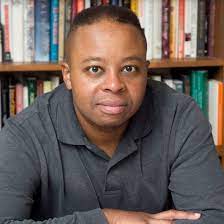Legacy Post Disclaimer
This is a #Legacy post imported from The Apalachicola Time’s previous platform. If you’re experiencing issues with this article, please email us at news@nevespublishing.com.
Apalachicola to consider election changes
For most of the country, 2023 will be a slow year for elections, as state and federal elections won’t be held again until 2024.
But for Apalachicola, the off-year election slated for next year will be a big one, with two city commission seats and the mayor’s post all up for grabs, and city officials are planning to weigh changes to the election calendar at a February workshop.
Earlier this year, Mayor Brenda Ash asked City Attorney Dan Hartman to draw up an advisory opinion on the question of moving the date of elections from odd-numbered years to even ones. Ash, along with city commissioners Despina George and Adriane Elliott, are all up for re-election in 2023, at an election set by city ordinance as “the third Tuesday after the third Monday in September.”
The purpose of changing the election date from odd years to even ones would be to increase voter participation and to save money, since the elections would coincide with either state or federal elections where turnout is sometimes, but not always, higher.
Turnout at last month’s midterm election countywide was 68.5 percent, just behind Sumter and Jefferson counties. Turnout at the 2021 city of Apalachicola elections, when there was just one city commission race, was just below 39 percent. But in 2019, when there was a mayoral race and two commission races on the ballot, the turnout was about 60 percent, and for the runoff election, about 67 percent.
In his memorandum, Hartman said commissioners could extend the terms of office by a year, putting them in sync with even years, by approving an ordinance, and would not be required by Florida law to hold a referendum. In making the change a few years back, Carrabelle took advantage of that option, and now elections for the standard four-year terms are conducted in even years.
Apalachicola resident Pete Whitesell spoke out strongly against making any change that either extends a term of office or trims it back, that is not in strict accordance with the stated term of office that was on the ballot when the candidate was elected.
“When a candidate runs for public office they make an agreement with voters for a length of time to serve,” he said. “I don’t think it should be broken except under the most extreme circumstances.”
Whitesell called it “a sort of corruption and perversion of the implicit agreement between politicians and voters,” and said that it would set a precedent in which officeholders could alter their terms without voters’ approval. In his memo, Hartman makes clear that Florida allows such an option only if it is required for the “orderly transition of office” affected by the ordinance.
“The city should hold a 2023 election with a stated term, and in 2025 hold it with a stated term,” Whitesell said.
In opening the discussion at the end of the Dec. 8 regular meeting, Ash offered her reasoning for advocating for the change. “I don’t consider myself corrupt, I consider myself fiscally sound, if (there’s an) opportunity to save money,” she said. “It’s a matter of looking at every option for the city. I think it’s a good idea to have a workshop and get a general idea how residents feel.
“I find it a little different that we are the only municipality in the area that has their elections in odd years,” Ash said. “We can save that expense.”
City commissioners indicated earlier this year they plan to hold an election in September, regardless of whether they stick with odd-numbered years or transition to even ones. If they decide to make the change, it will likely be to make the terms of office for the two commission seats, now held by George and Elliott, and the mayoral election, either for three or five years.
Commissioner Anita Grove estimated the 2019 elections cost the city $8,000, plus another $10,000 for a runoff, although hard numbers were not shared at the meeting. She said she would like to see elimination of the runoff, with whoever gets the most votes in the first election, regardless of how many candidates are competing, being the winner. Eliminating runoffs, which are mentioned in the city charter, also could be done by ordinance, according to Hartman’s memo, in his interpretation of 1973 changes to election laws made by the state legislature.
“We had three candidates, no one got 50 percent, and we had to spend another $10,000 to have a runoff election,” said Grove.
“We could be trendsetters and move to ranked choice voting,” said Elliott. “Statistically the most generally popular candidate would be put in office.”
Carrabelle’s system is more akin to a ranked choice system, in that instead of head-to-head contests for specific commission seats, voters choose their top two candidates out of the field, and the two highest vote getters are elected.
George made clear she opposes any move to extend current terms by ordinance. “I think it’s unconscionable for elected officials to extend their term in office for another year when they were elected for a set term,” she said.
She has not spoken in favor of changing the election cycle, and supported workshopping “sooner rather than later,” since qualifying week is the last week of June for the 2023 election.
“I think there’s a lot of things we can consider,” George said. “Do we keep it on a non-partisan basis, or do we have primaries and then general elections? There’s a lot of moving parts.”
The commissioners all supported Elliott’s suggestion the workshop be held preceding the Feb. 7, 2023 meeting, and that a decision be made at the March 2023 meeting.



Meet the Editor
David Adlerstein, The Apalachicola Times’ digital editor, started with the news outlet in January 2002 as a reporter.
Prior to then, David Adlerstein began as a newspaperman with a small Boston weekly, after graduating magna cum laude from Brandeis University in Waltham, Massachusetts. He later edited the weekly Bellville Times, and as business reporter for the daily Marion Star, both not far from his hometown of Columbus, Ohio.
In 1995, he moved to South Florida, and worked as a business reporter and editor of Medical Business newspaper. In Jan. 2002, he began with the Apalachicola Times, first as reporter and later as editor, and in Oct. 2020, also began editing the Port St. Joe Star.